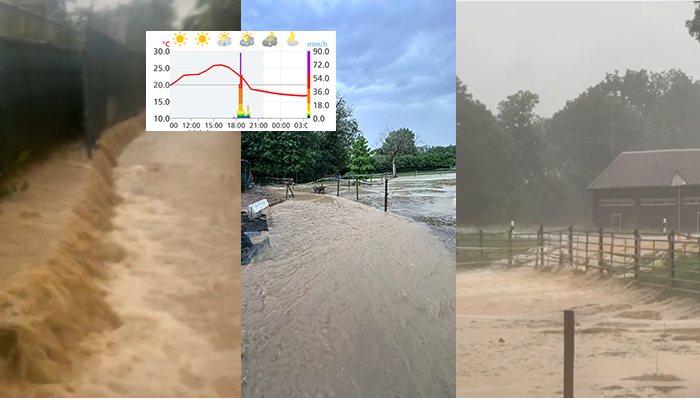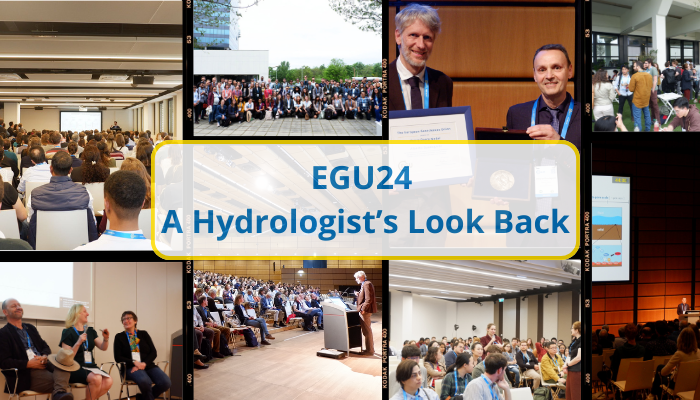Hortonian overland flow – if you have ever followed a hydrology class, you have certainly come across this jargon: this is the name of a hydrological process – when rainfall flows off at the terrain surface because the rainfall intensity is so high that not all the water can infiltrate into the soil (rainfall intensity is higher than infiltration capacity). Almost every hydrological m ...[Read More]
Call to participate to the public consultation for the Water4All-Partnership
Those of you who are active in proposal writing might know the programme Water4All Partnership – Water Security for the Planet. It is a funding programme for scientific research in freshwater with the goal to address urgent water-related challenges. The programme is co-funded by the European Union within the frame of the Horizon Europe programme (lasting until 2027) and includes 90 partners ...[Read More]
EGU24 – A Hydrologist’s Look Back
With almost 21,000 participants, the 2024 EGU General Assembly, held from 14-19 April, in Vienna and online, was the biggest one yet. For hydrologists, there were hundreds of sessions to enjoy, networking events to join, short courses to learn from, and colleagues to meet. Here’s a look back at the highlights! A look back at EGU24. Thanks to the video editing service Tasty Edits for the fantastic ...[Read More]
How has ChatGPT changed the way you teach hydrology?

Have you ever used ChatGPT to teach hydrology? If so, when did you start? I opened my account on openai.com in November 2022, out of curiosity, to test GPT-3 (Generative Pretrained Transformer generation 3). This was shortly before ChatGPT was launched (30 November 2022). Now, I even have a paid account to speed up the preparation of non-scientific texts, e.g. teaching materials on the use of Exce ...[Read More]



